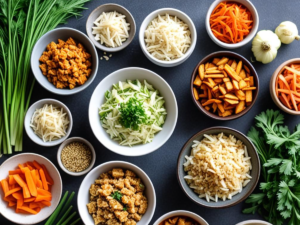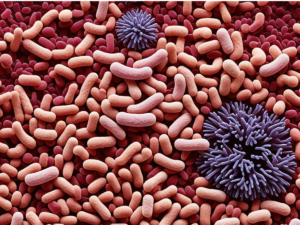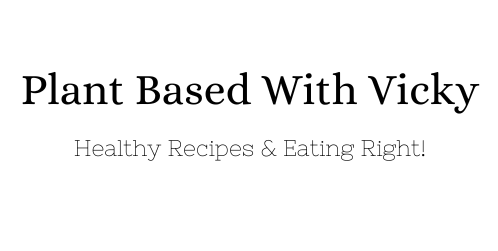Gut Healing Foods: Healing Your Gut with Food

 In recent years, gut health has emerged as a pivotal aspect of overall well-being. The gut, often referred to as your “second brain,” is home to trillions of microorganisms that play a critical role in digestion, immune function, and even mental health. An imbalance in your gut microbiome, known as dysbiosis, can lead to many health issues, including inflammatory bowel diseases, irritable bowel syndrome (IBS), and even mood disorders.
In recent years, gut health has emerged as a pivotal aspect of overall well-being. The gut, often referred to as your “second brain,” is home to trillions of microorganisms that play a critical role in digestion, immune function, and even mental health. An imbalance in your gut microbiome, known as dysbiosis, can lead to many health issues, including inflammatory bowel diseases, irritable bowel syndrome (IBS), and even mood disorders.
Fortunately, there are numerous foods that can help restore and maintain a healthy gut microbiome. In this post, we will explore 20 gut-healing foods that can aid in restoring gut health and promoting overall well-being.
The Importance of Gut Health
The gut microbiome consists of a diverse community of bacteria, viruses, fungi, and other microorganisms. These microbes are essential for breaking down food, absorbing nutrients, and protecting against harmful pathogens. A balanced gut microbiome supports:
- Digestion: Efficient breakdown and absorption of nutrients.
- Immune Function: Protection against infections and regulation of immune responses.
- Mental Health: Production of neurotransmitters that influence mood and cognitive functions.
- Metabolism: Regulation of weight and prevention of metabolic disorders.
Imbalances in the gut microbiome can result from poor diet, stress, antibiotics, and other factors. Incorporating gut-healing foods into your diet can help restore balance and support overall health.
Top 20 Gut-Healing Foods

- Kefir Kefir is a fermented dairy product rich in probiotics, which are beneficial bacteria that promote a healthy gut microbiome. Regular consumption of kefir can improve digestion and boost the immune system.
- Yogurt Yogurt is another excellent source of probiotics. Choose plain, unsweetened yogurt with live active cultures to maximize its gut-healing benefits.
- Sauerkraut Sauerkraut is fermented cabbage that is packed with probiotics. It aids in digestion, reduces inflammation, and can even enhance mood by producing beneficial neurotransmitters.
- Kimchi Kimchi is a traditional Korean dish made from fermented vegetables. It is rich in probiotics and vitamins that support gut health and overall immunity.
- Miso Miso is a fermented soybean paste commonly used in Japanese cuisine. It contains probiotics that enhance gut flora and improve digestion.
- Tempeh Tempeh is a fermented soybean product that is high in protein and probiotics. It promotes a healthy gut microbiome and provides a plant-based protein source.
- Kombucha Kombucha is a fermented tea beverage that is rich in probiotics. It helps detoxify the body, improve digestion, and boost energy levels.
- Apple Cider Vinegar Apple cider vinegar contains acetic acid, which has been shown to promote the growth of beneficial bacteria in the gut. It also aids in digestion and helps maintain blood sugar levels.
- Bone Broth Bone broth is made by simmering animal bones and connective tissue. It is rich in collagen, gelatin, and amino acids that support gut lining integrity and reduce inflammation.
- Garlic Garlic has natural antibacterial and antifungal properties that help balance the gut microbiome. It also contains prebiotics, which feed beneficial gut bacteria.
- Onions Onions are rich in prebiotics, particularly inulin, which helps stimulate the growth of beneficial bacteria in the gut.
- Asparagus Asparagus is another great source of prebiotics. It contains fiber and antioxidants that support a healthy gut microbiome.
- Bananas Bananas are gentle on the digestive system and contain prebiotic fibers that help nourish beneficial gut bacteria.
- Apples Apples are rich in pectin, a type of soluble fiber that acts as a prebiotic. Pectin helps improve digestion and supports the growth of beneficial bacteria.
- Leeks Leeks are part of the allium family, like garlic and onions, and are rich in prebiotics that promote a healthy gut.
- Jerusalem Artichokes Also known as sunchokes, Jerusalem artichokes are high in inulin, a prebiotic fiber that supports gut health.
- Chicory Root Chicory root is commonly used as a coffee substitute and is rich in inulin, making it a powerful prebiotic that supports digestive health.
- Blueberries Blueberries are rich in antioxidants and fiber. They help reduce inflammation in the gut and promote the growth of beneficial bacteria.
- Fermented Vegetables Beyond sauerkraut and kimchi, other fermented vegetables like pickles and beets provide a variety of probiotics that support gut health.
- Dark Chocolate Dark chocolate contains polyphenols that have been shown to positively influence gut bacteria. Opt for dark chocolate with at least 70% cocoa content for the best benefits.
Incorporating Gut-Healing Foods into Your Diet
Adding these gut-healing foods to your diet can be easy and enjoyable. Here are some tips and ideas for incorporating them into your daily meals:
- Start Your Day with a Probiotic-Rich Breakfast Begin your morning with a bowl of yogurt topped with fresh berries, a drizzle of honey, and a sprinkle of nuts and seeds. Alternatively, enjoy a smoothie made with kefir, banana, and spinach.
- Enjoy Fermented Foods as Side Dishes Add a serving of sauerkraut or kimchi to your lunch or dinner plate. These fermented vegetables pair well with salads, sandwiches, and rice bowls.
- Sip on Bone Broth Make bone broth a part of your daily routine by sipping a warm cup in the afternoon or using it as a base for soups and stews.
- Use Apple Cider Vinegar in Dressings Create a simple and healthy salad dressing by mixing apple cider vinegar with olive oil, mustard, and herbs. Drizzle it over your favorite greens for a gut-friendly meal.
- Snack on Prebiotic Foods Keep your gut happy by snacking on raw vegetables like carrots, asparagus, and leeks. Pair them with hummus or another healthy dip for added flavor.
- Indulge in Dark Chocolate Treat yourself to a piece of dark chocolate as an afternoon snack or dessert. Remember to choose varieties with high cocoa content to maximize the gut health benefits.
- Experiment with Fermented Beverages Try different flavors of kombucha or make your own at home. Enjoy a glass with meals or as a refreshing drink throughout the day.
The Role of Prebiotics and Probiotics
Understanding the difference between prebiotics and probiotics is essential for optimizing gut health. Both play distinct but complementary roles in maintaining a balanced gut microbiome.
- Probiotics are live microorganisms that provide health benefits when consumed in adequate amounts. They help populate the gut with beneficial bacteria, improving digestion and immune function. Foods like yogurt, kefir, sauerkraut, and kimchi are rich sources of probiotics.
- Prebiotics are non-digestible fibers that act as food for beneficial gut bacteria. They help stimulate the growth and activity of these microorganisms. Foods like garlic, onions, asparagus, bananas, and Jerusalem artichokes are excellent sources of prebiotics.

The Gut-Brain Connection
The gut and brain are interconnected through the gut-brain axis, a bidirectional communication system involving neural, hormonal, and immunological pathways. This connection means that gut health can significantly impact mental health and vice versa. Here are a few ways gut-healing foods can influence the gut-brain axis:
- Reducing Inflammation: Many gut-healing foods have anti-inflammatory properties that can help reduce inflammation in the gut and brain, promoting better mental health.
- Producing Neurotransmitters: Certain gut bacteria produce neurotransmitters like serotonin and dopamine, which play key roles in mood regulation and cognitive function. A healthy gut microbiome supports the production of these important chemicals.
- Modulating Stress Responses: A balanced gut microbiome can help regulate the body’s stress response, reducing symptoms of anxiety and depression.
Practical Tips for Maintaining Gut Health
In addition to incorporating gut-healing foods into your diet, there are several lifestyle practices that can support gut health:
- Stay Hydrated: Drinking plenty of water helps maintain the mucosal lining of the intestines and supports the balance of good bacteria in the gut.
- Exercise Regularly: Physical activity promotes healthy digestion and can positively influence the composition of the gut microbiome.
- Manage Stress: Chronic stress can negatively impact gut health. Practice stress management techniques such as mindfulness, meditation, and deep breathing exercises.
- Get Enough Sleep: Quality sleep is essential for overall health, including gut health. Aim for 7-9 hours of sleep per night.
- Limit Antibiotic Use: While antibiotics can be necessary for treating bacterial infections, they can also disrupt the gut microbiome. Use antibiotics only when prescribed by a healthcare professional and consider taking probiotics during and after treatment to help restore gut balance.
Gut health is a cornerstone of overall well-being, influencing everything from digestion and immunity to mental health and metabolism. By incorporating a variety of gut-healing foods into your diet, you can support a balanced gut microbiome and promote optimal health. Remember to include both probiotics and prebiotics in your meals, and adopt healthy lifestyle practices to maintain a thriving gut environment. With these strategies, you can enjoy the benefits of a healthy gut and a happier, healthier life.
